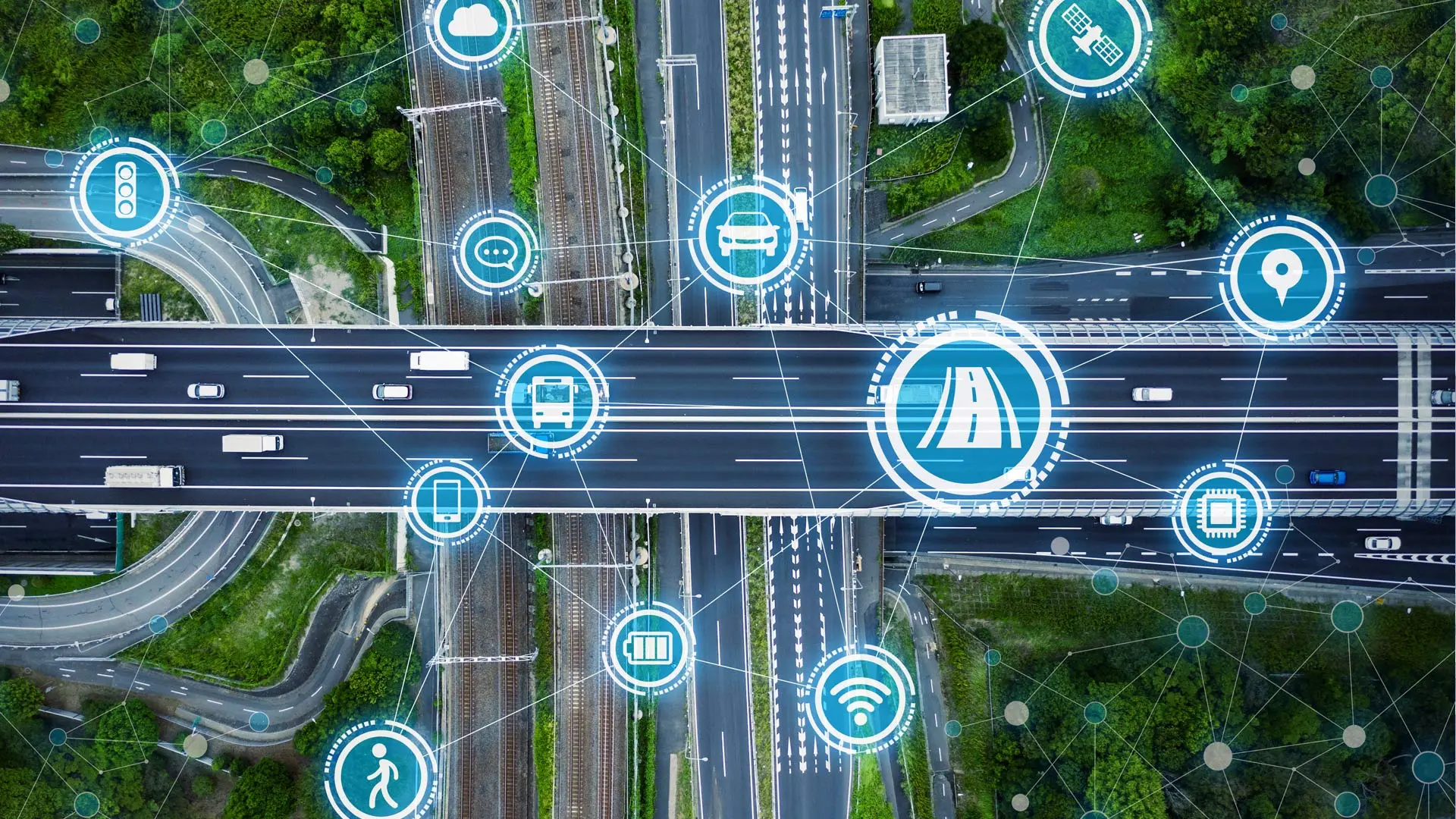
How IoT can help the transport sector in managing the Corona Crisis
2020 was a promising year that many of us were impatiently expecting. Space launches, 5G and robotic innovations were some of the most-anticipated projects for this year. Until the coronavirus pandemic’s outbreak, which has shifted the attention to new challenges. Called the biggest outbreak of the last century, one of the major effects that will follow the pandemic, is the economic crisis it will bring along. This is also a new challenge for the future of road transportation. News is constantly updated, given the fact that governments and businesses themselves are working hard to try and reintegrate a smooth transportation process. At the same time, the crisis could also pave the way for new technologies like the Internet of Things (IoT) considering the transport and logistics sector.
If you would like to know more about the overall effect of the corona crisis on the transport sector, head over to our March blog post to learn more!
Current situation in the road transport sector during COVID-19
No matter the complexity of the coronavirus crisis, road transport never stopped. Itineraries were significantly reduced and heavily disrupted, but goods were still transported to their end destinations. According to the European Road Freight Rate Benchmark Q1 2020 report, the rates on road freight are facing growing volatility in the months to come. Prices in Europe fell by 0.8% in the first quarter of the year in comparison to the previous quarter, and by only 0.2% compared to the beginning of 2019. Based on a recent report, the average price per kilometre paid by shippers was € 1.61 in Q1 2020. As Anne Kerriou states “If the health crisis has not yet had a massive impact on prices during this first quarter, it is manifested, however, through a sharp increase in rate volatility, which should continue over the coming months”.
Legislative initiatives to protect carriers during the Corona crisis
Every day, we wake up to new regulations and proposals as countries are trying to figure out the best practices that will limit the negative effect of the upcoming crisis. New on the spotlight are French associations that are pushing the government to ask for the abolition of cabotage. Cabotage in a nutshell is the transport of goods or passengers between two places in the same country by a transport operator that is registered in another country. The association of carriers OTRE, sent a letter to the Regional Council of France, asking the closure of cabotage for 6 months to protect national carriers. Other associations have joined this initiative, demonstrating the preoccupation of the transport sector. As mentioned from OTRE’s side, Brussels should intervene to prevent foreign companies lower the standard rate in France. Characteristically, it is claimed that “If Brussels and Paris do nothing about it, you can expect an angry reaction from the base of road freight transport”, something that would deepen the already existing crisis.
The Internet of Things (IoT) seems to be the future in the transport sector
As analysed in a previous article, the Internet of Things (IoT) can be a useful tool in the battle against the COVID-19. Following the artificial intelligence (AI) principles, the IoT aspires to connect us to electronic devices and allow the exchange of data in real-time. One of the first measures that was globally taken to prevent the spread of the COVID-19, was social distancing, as the virus spreads with human contact. Airlines, offices and a majority of businesses are willing to install software and machinery in order to avoid contact. A report analysis published on April 2020 estimates that by 2021, the IoT is expected to grow from USD 150 billion in 2019 to USD 243 billion, numbers that show a new revolution in today’s way of working.
One of the most popular ideas for using IoT in the transport sector that is currently being discussed is automated and contactless interaction. A very good example hereof is the C4T Calais service area in France. The project concerns a parking spot for trucks, where drivers can be reassured that they have a place to park their trucks and at the same time stay safe by limiting the COVID-19 spread. The reservation and the payment process are both automated and contactless. Considering the operational part, a special camera will record the license plate at the entrance of each truck and, only in case of prior reservation, the truck can enter the parking lot contactless.
Day by day reports are showing that the use of the IoT is drastically increasing, with more and more businesses trusting their data to this smart virtual environment. This new way of living can impact the entire trade activity of commercial transportation not only nationally but on a global level. With the installation of a smart device in the truck, information can be gathered and stored on a cloud, considering the routes that are made and the frequency of travel. Such an initiative is considered a big step in the transportation industry as this sort of data can help the sector navigate way more efficiently while under pressure and make us better prepared in the scenario of a second wave or a new pandemic in the future.
What this outbreak has taught us so far, is that the technology can have a catalytic effect on every field. Let’s take the supply chain as an example. What we see is that by digitalizing most of the process, we can have better insights in all phases of the supply chain, making the overall development more agile and effective. In the case of road transport, we can make better decisions by leveraging a truck’s full capacity. Moreover, we can judge the best routes for the carrier and a more operative management of supply and demand.
